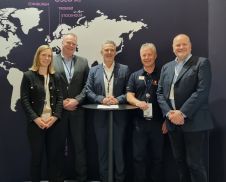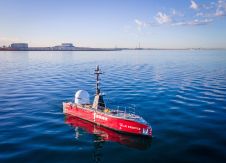Ensuring Competencies in Hydrography and Cartography
The 35th meeting of the International Board on Standards of Competence for Hydrographic Surveyors and Nautical Cartographers was held in Buenos Aires, Argentina, from 21 to 31 May, 2012. It was hosted by the Argentinian Navy. The meeting reviewed 12 programmes, namely, 7 Hydrography, 4 Nautical Cartography and 1 Scheme for Recognition of Individuals for competency in Hydrography.
Historically, it has been a long journey for the Board, with several name changes such as at its establishment in 1971, when it was known as the International Advisory Board on Standards of Competence for Hydrographic Surveyors, consisting of members from the International Federation of Surveyors and International Hydrographic Organization to the present IBSC (International Board on Standards of Competence). Among the standards developed by the Board at the time was the S-5 Standards (formerly known as M-5). In 2002, with the inclusion of the International Cartographic Association, it became known as the International Advisory Board on Standards of Competence for Hydrographic Surveyors and Nautical Cartographers. This enabled the Board to develop yet another Standard: S-8 (formerly known as M-8).
There are different provisions in these standards that must always be brought to the attention of our communities. In all, there are 51 recognised programmes of which 45 fall under Hydrography and 6 under Cartography. In addition, for the hydrography programmes, 24 of the programmes are recognised for Category B, while 21 are for Category A. Likewise, those recognised for Cartography are: 2 for Category A and 4 programmes for Category B. The breakdown of institutions offering these programmes is as follows: 20 from the Hydrographic Schools of IHO Hydrographic Offices, 13 from academic institutions and 2 from private establishments.
It is also noteworthy that over the years, there have been changes to the Standards, reflecting different developments of ideas and creativity. Among these are: site visitations by the Board to institutions offering the Category A and Category B programmes and an annual internal assessment by the institutions. There is a drop in institutional status recognition from a 10-year period to a 6-year period, with recognition of the provisions under the Scheme for Recognition of Individuals Competency. Thus, the individual recognition scheme was evaluated and recognised for the first time in Buenos Aires. This is a formal system that reviews and assesses individuals’ experience in order to award them with Recognition of Individuals Competency. In addition, the Board released the S-5 version 11.0.1 as of May 2011 as well as S-8, Third Edition in 2010. The Board has also commenced work on complete revisions of new Standards for S-5 and S-8.
It was also highlighted that institutions submitting their programme for recognition are encouraged to be present at the annual meeting, for cross examinations and feedback from the Board.
It is therefore expected that these requirements will help in ensuring the desired competency levels by the various stakeholders in the communities.

Value staying current with hydrography?
Stay on the map with our expertly curated newsletters.
We provide educational insights, industry updates, and inspiring stories from the world of hydrography to help you learn, grow, and navigate your field with confidence. Don't miss out - subscribe today and ensure you're always informed, educated, and inspired by the latest in hydrographic technology and research.
Choose your newsletter(s)
























